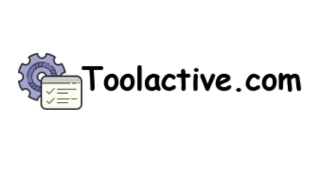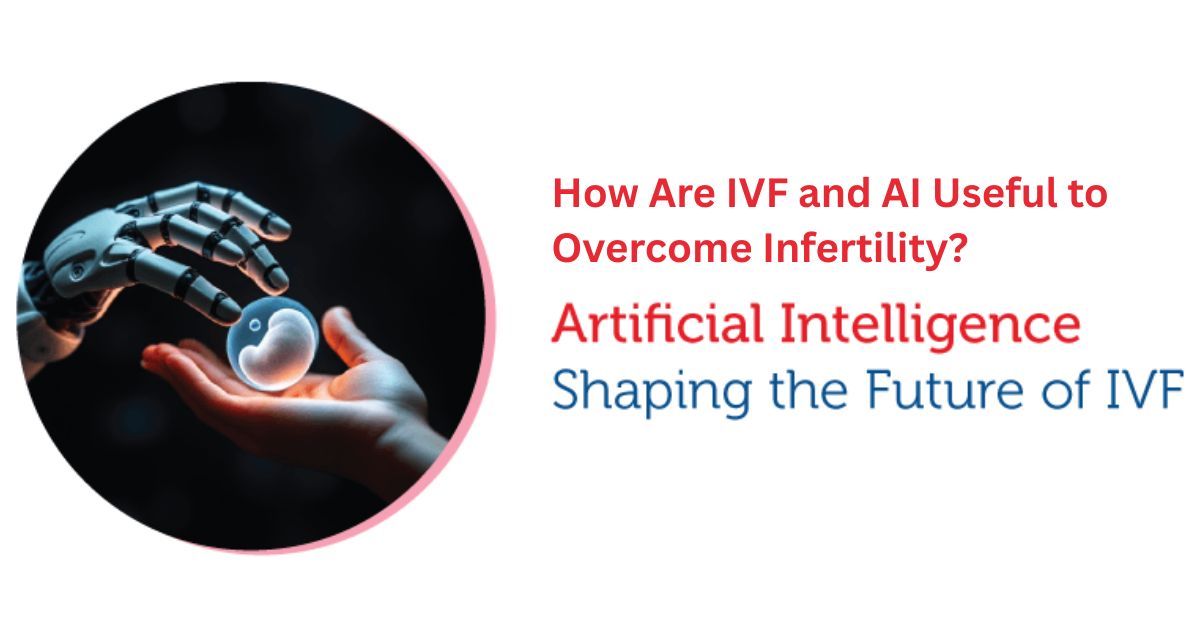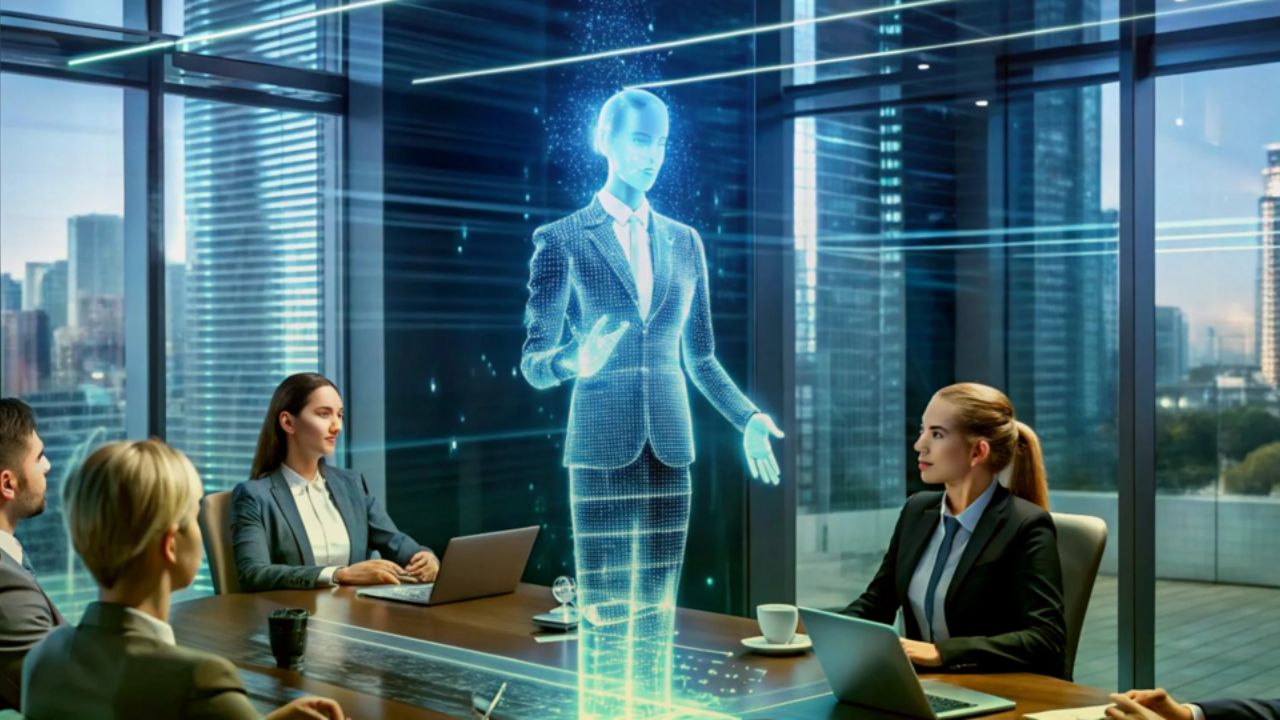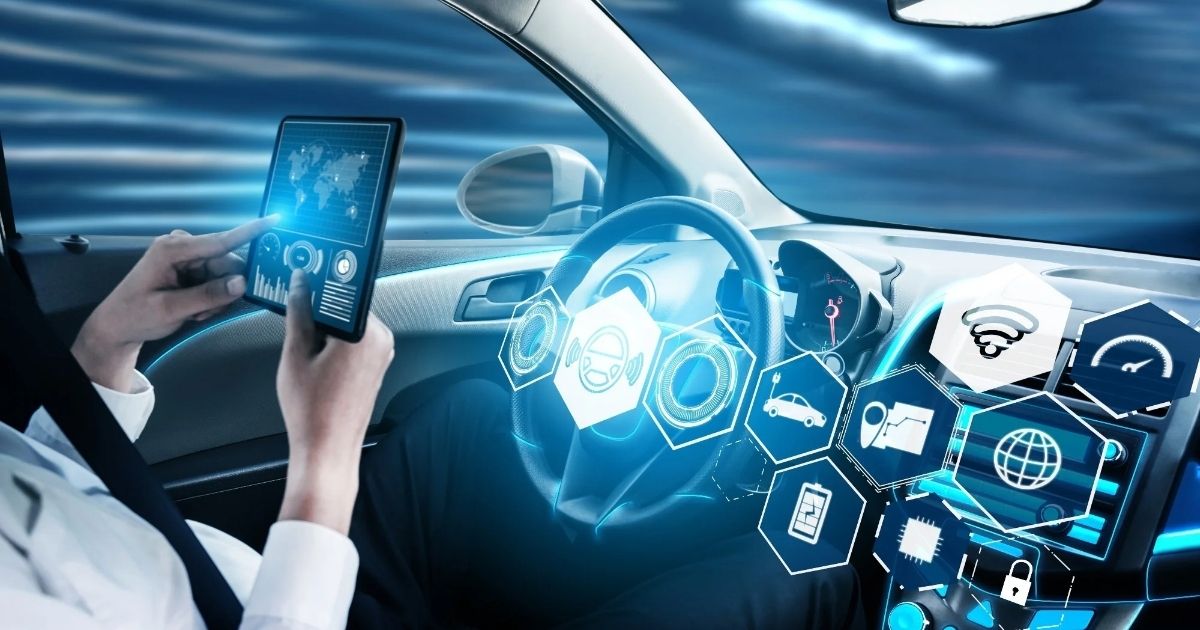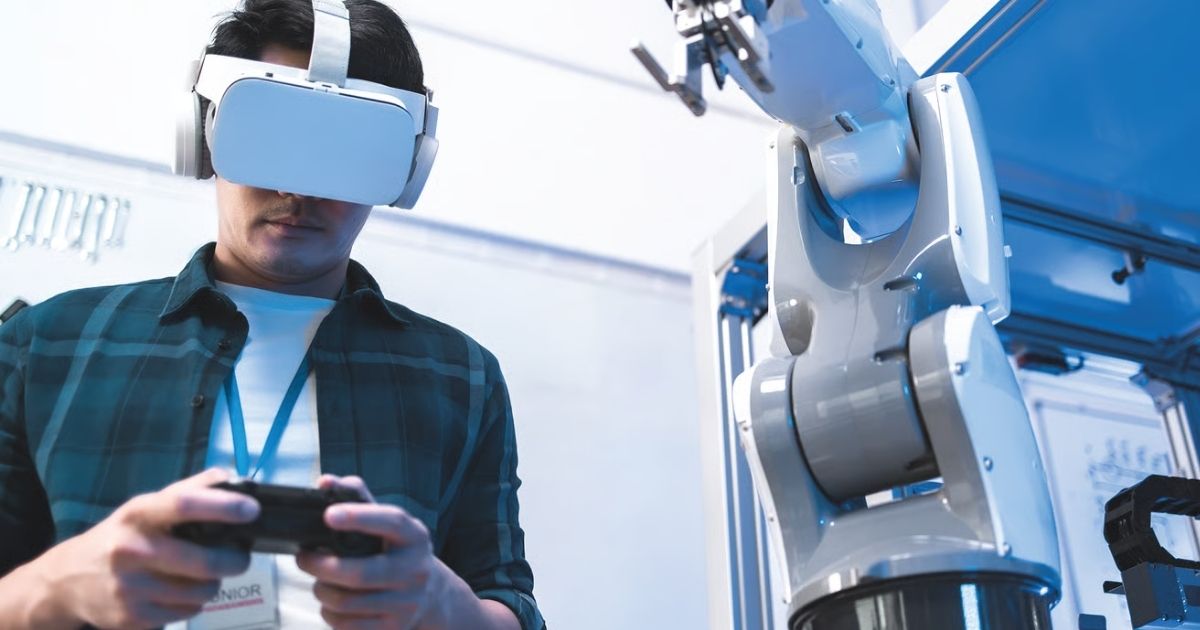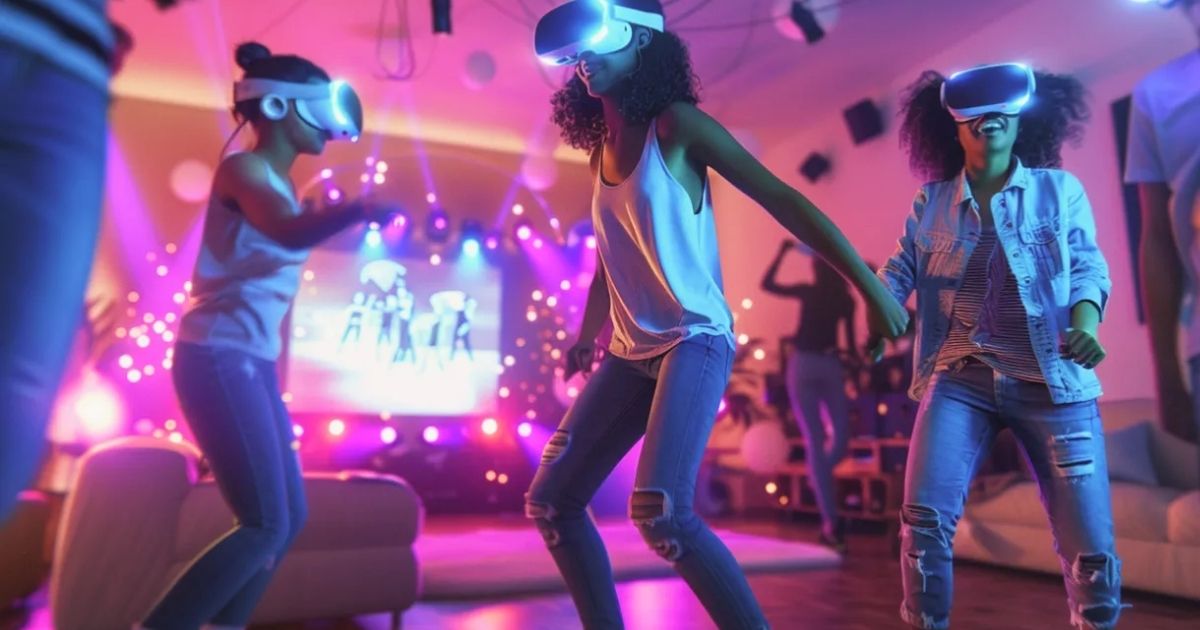At the crossroads of innovation and people-first strategies in Human Resource Management (HRM), Artificial Intelligence (AI) is shining a light on a whole new way to build and nurture teams. It’s not a cookie-cutter solution, though, jumping into AI means tailoring it to your company’s vibe, goals, and unique challenges.
Every business has its own path when it comes to blending AI into HR. Some want to supercharge hiring, others are all about boosting team morale or planning for what’s next. That’s why it’s so important to figure out how AI fits with your big-picture vision and the day-to-day realities of your HR world before you go all in.
When it’s done right, AI isn’t just a cool new toy—it’s like a trusted teammate that makes HR sharper, more connected, and ready for whatever’s coming. In this blog, I’m diving into how AI’s shaking up HR, the awesome stuff it brings, the tricky bits we can’t ignore, and what’s on the horizon.
Related: AI in Project Management: Tools to Simplify Your Work
Hiring That Feels Less Like a Grind
Hiring used to mean drowning in resumes, juggling endless emails, and hoping you didn’t miss the perfect person for the job. AI’s like your new best friend here. Tools like applicant tracking systems (ATS) with some machine-learning magic can whip through thousands of resumes in no time, picking out the best matches based on skills and experience. No more late-night coffee runs just to sort through CVs.
AI’s also got a knack for finding talent in unexpected places. Platforms like Entelo or HireVue poke around LinkedIn, GitHub, or even X to find folks who might not be job-hunting but are a great fit. And those AI chatbots? They’re like a super-friendly HR pal who answers candidate questions, sets up interviews, and keeps things moving, making the whole process feel less like a hassle.
Here’s the big win: AI can help dial down bias. It can focus on skills and qualifications, skipping over things like names or accents that might accidentally sway a recruiter. But here’s the deal—AI’s not perfect. If it’s trained on data from a company that, say, hired mostly one type of person, it’ll keep those old patterns alive. Companies need to stay on top of their AI, making sure it’s fed diverse data to actually make hiring fairer.
.png)
Making New Hires Feel at Home
Starting a new job can feel like stepping into the unknown, but AI’s turning onboarding into a warm welcome. Instead of generic handbooks, tools like Mya Systems create custom plans, suggesting training that fits your role or how you learn best. It’s like having a buddy show you the ropes so you can hit the ground running.
Keeping everyone excited about their work is where AI really shines. Tools like Glint or CultureAmp sift through feedback from surveys, emails, or X posts to get a sense of the team’s vibe. If something’s off, HR can step in before it’s a big deal. And those virtual assistants in Slack or Microsoft Teams? They’re like an HR hotline, answering questions about benefits or career growth in a flash, which keeps folks happy and lets HR focus on the big stuff.
Performance Reviews That Don’t Suck
Let’s be real—those once-a-year performance reviews often feel like a trip to the principal’s office. AI’s changing that with real-time feedback. Platforms like Lattice or 15Five pull data from projects, peer reviews, and self-check-ins to show how you’re actually doing. It’s less about someone’s opinion and more about the real picture.
AI can also play psychic, spotting who might be struggling or thinking about leaving. By looking at past trends, it can flag folks who need a little extra help—like training or a mentor. IBM’s Watson, for instance, uses this predictive power to help HR keep great people from walking out the door.
 (5).png)
Learning That’s All About You
Learning and development (L&D) are about staying sharp, and AI’s making it feel personal. Platforms like Degreed or EdCast recommend courses, webinars, or certifications based on your job, goals, and where you need a boost. They even keep tabs on what’s hot in your industry to help you stay ahead.
AI’s big on microlearning too—think quick, tailored lessons that fit your needs. Struggling to juggle your time? You might get a short video or article on productivity hacks. It’s fast, it’s relevant, and it shows your company’s got your back, which feels pretty great.
Caring About Well-Being
These days, employee well-being is huge, and AI’s stepping up. Apps and wearables from companies like Welltok track things like sleep, stress, or activity (anonymized, of course) to help HR build wellness programs that actually work. AI chatbots like Woebot are like a friend in your pocket, offering tips to manage stress or pointing you to pros if you need more.
But here’s the catch—some people might feel weird about their data being tracked, even if it’s anonymous. HR’s gotta be crystal clear about what’s being collected and make sure everyone’s okay with it to keep the trust strong.
The Tricky Stuff
AI’s amazing, but it’s not all sunshine. Privacy’s a big one—AI needs a ton of personal data to do its thing, and that means following rules like GDPR or CCPA to avoid trouble. Companies also need to make sure their AI isn’t a black box—employees should understand how hiring or promotion decisions are made.
Bias is another headache. If AI’s trained on data that’s got old biases baked in—like hiring mostly one group—it’ll keep those biases going. Regular checks and diverse data are a must to keep things fair.
And HR folks? They’ve gotta get comfy with AI tools, data analytics, and the ethical side of things. That means lots of training to use AI like pros while keeping that human touch.
 (4).png)
What’s Next for HR?
The future’s looking pretty cool. As AI gets smarter, we might see stuff like generative AI creating custom career paths or virtual reality for next-level training. It could also help with diversity, spotting gaps in representation and offering real solutions.
But let’s be honest—AI can’t replace the human stuff. Empathy, gut feelings, and those tough ethical calls? That’s all us. The best companies will blend AI’s smarts with human heart to create workplaces that feel productive and just plain good to be in.
The Bottom Line
AI’s turning HR upside down, making hiring smoother, learning personal, and well-being a real focus. It’s paving the way for efficiency and fairness, but there are challenges—privacy, bias, and new skills aren’t small hurdles. As companies dive into this AI world, they’ve gotta stay ethical and keep learning to make it work. The future of HR is this awesome mix of tech and heart, creating places where people and businesses both thrive.

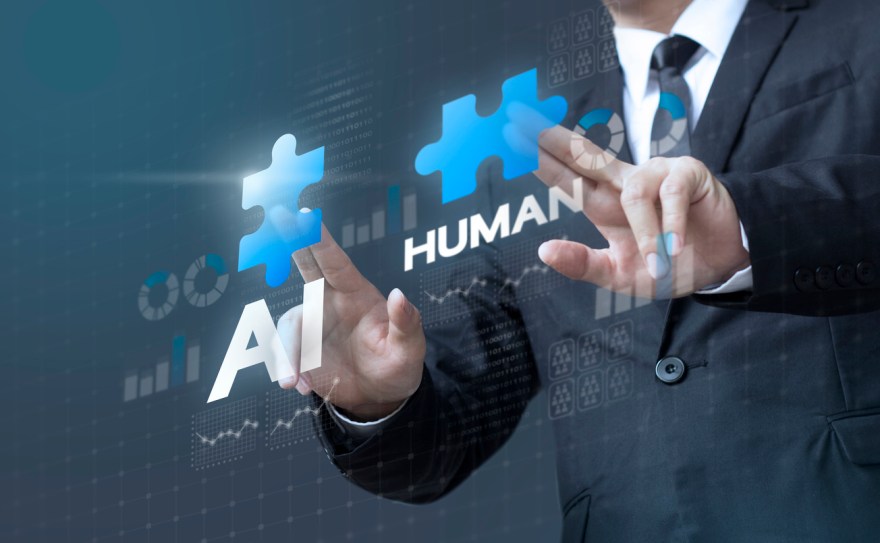
.png)
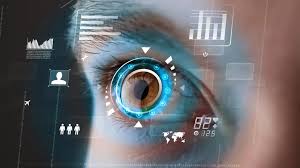

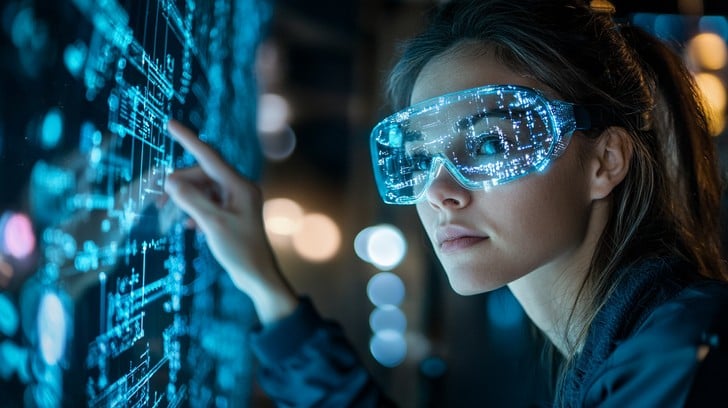
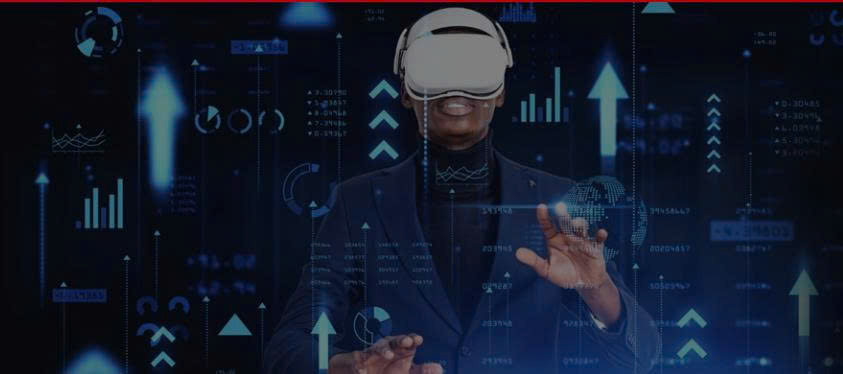
.jpg)
